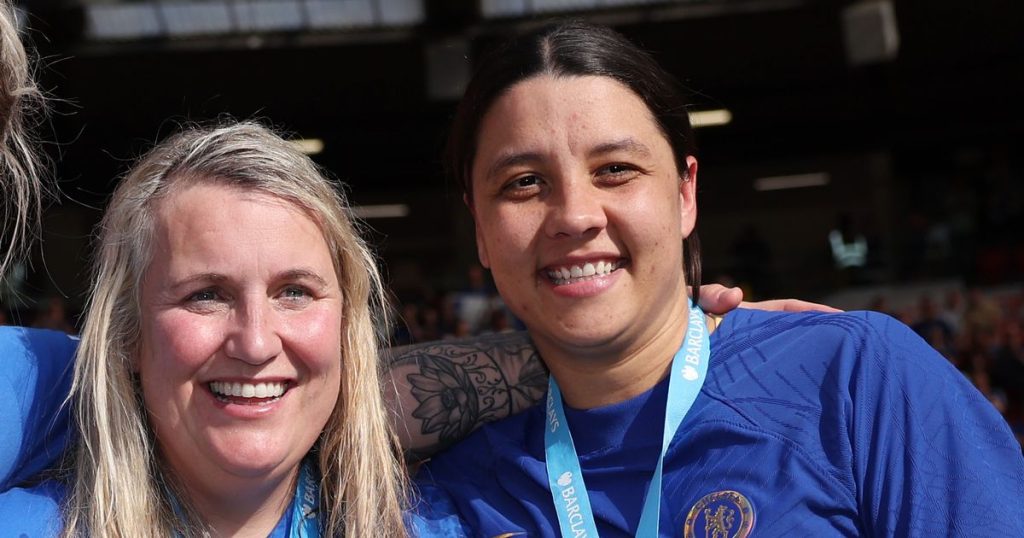Australian striker Sam Kerr has been ruled out of the summer Olympics in Paris this year due to an anterior cruciate ligament injury she sustained during a Chelsea training camp in January. This marks the second consecutive summer that Kerr will miss a major tournament due to injury after being forced to sit out most of last year’s Women’s World Cup. Despite returning in time for the semi-finals, where she scored a stunning goal against England, Kerr’s injury woes have resurfaced, putting her in an unlikely race against time to recover before the tournament begins in July. The ACL injury is a common occurrence among elite-level women’s footballers, with Kerr joining a list of high-profile absentees from last summer’s World Cup, including Arsenal’s Leah Williamson and Netherlands’ Vivianne Miedema.
Matildas coach Tony Gustavsson confirmed that Kerr will not be returning in time for the Olympics, which means she will miss out on the opportunity to represent Australia in the tournament. Kerr, who is Australia’s all-time leading goal scorer and a national sporting idol, will not be able to reunite with former Chelsea manager Emma Hayes, who has recently taken over as the head coach of the US Women’s National Team. Both the USA and Australia will be participating in the Olympics, with Hayes leading the USWNT in her first major tournament. Chelsea, under Hayes’ management, secured their last Women’s Super League title in a dramatic league finale, with Kerr cheering on her teammates from the stands and celebrating their victory.
The absence of Kerr from the Australian squad is a significant blow for the team as they prepare for the Olympics. Kerr’s prolific goal-scoring record and leadership on the field will be sorely missed by her national team, who will now have to reshuffle their squad and tactics in her absence. Kerr’s injury is a reminder of the physical demands and risks that come with playing professional football at the highest level, especially for female athletes who often face unique challenges and obstacles in their careers. Despite the setback, Kerr’s determination and resilience in the face of adversity has been evident throughout her career, and she is likely to bounce back stronger from this latest setback.
The news of Kerr’s injury has sparked discussions around the growing concerns of declining fitness and injury rates in women’s football, as more players are being sidelined due to long-term injuries such as ACL tears. The physical demands of the game, combined with the lack of adequate support and resources for women’s footballers, can contribute to an increased risk of injuries and burnout among players. It is crucial for football authorities and clubs to prioritize the health and well-being of female athletes by providing them with the necessary resources, medical support, and recovery protocols to prevent injuries and prolong their careers. As the popularity and competitiveness of women’s football continue to rise, addressing these issues will be essential to ensure the long-term sustainability and success of the sport.
Kerr’s absence from the Olympics will be a disappointment for fans and teammates who were looking forward to seeing her compete on the world stage once again. Her talent and leadership on the field have made her a role model and inspiration for aspiring young footballers, both in Australia and around the world. While Kerr’s injury may have come at a difficult time, her determination and resilience will undoubtedly see her through this setback, and she will be back stronger and more motivated to continue her impressive career in women’s football. The support and well-wishes from fans, teammates, and the football community will be crucial in Kerr’s road to recovery and eventual return to the pitch.


